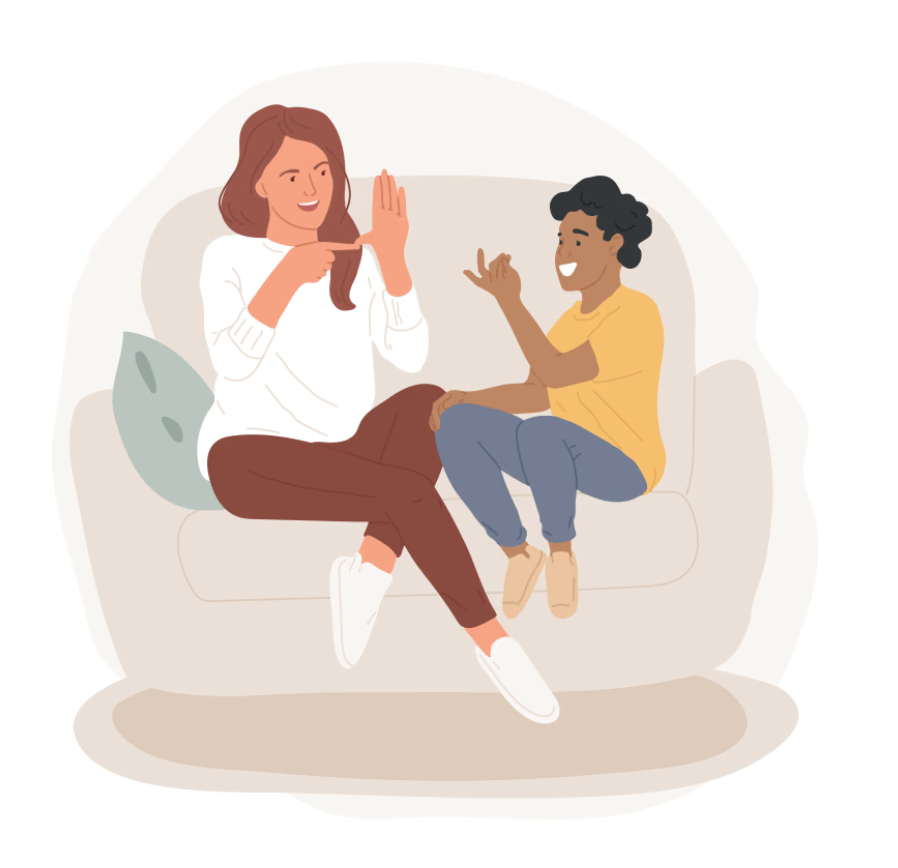Easy Teen Tips for Cellphone and Computer Etiquette
- Narda Skov
- Apr 1, 2023
- 4 min read

Other than reminding our kids to say 'Please' and 'Excuse me', 'Thank you,' and of course 'Treat others as you would want to be treated.' I am not sure many parents sit down and discuss some other important etiquette for the way we communicate today. We know that by minding one's manners, friends, and peers will look up to a young person who can navigate adult worlds and other adults will be impressed with the maturity of a young person who is polite. But, have we given our kids the tools they need to successfully navigate the internet and have the same social rules apply when they are communicating online?
I recently read a great article inspired by high schooler in Palo Alto who was reminding their peers about some social rules that other teens should be aware of and thought the advice was great to share with other parents as we continue to navigate adolescent phone usage and new rules and studies about its advantages and disadvantages. I hope these tips help!
Telephone Etiquette:
Never call before 7 a.m. on weekdays, before 9:30 a.m. on weekends, or after 9 p.m. any day of the week to make sure that you don't wake someone up.
Don't call during dinner time.
When you call a friend and someone in their family answers the phone, introduce yourself and say: "Hi, this is (insert name). May I please speak to (your friend's name)?" Always remember to say 'thank you'!
If you leave a message, wait until after the beep and make sure you leave your name, your phone number and your reason for calling.
If you accidentally dial the wrong number, say that you dialed incorrectly and apologize, then hang up.
Even though it can be funny and entertaining, don't make prank calls. They are disruptive and annoying to others.
If you answer the phone, say, "Hello," and wait for the speaker to introduce themselves.
If you answer the phone when no one else is in the house, don't tell the caller you are home alone. Simply say the person with whom they wish to speak cannot come to the phone.
If the caller asks to speak to someone who is not home, ask if you can take a message or if they would like to be called back. If the caller asks to be called back, make sure you ask for their phone number.
Don't interrupt someone while they are talking. This goes for all conversations, not just on the phone.
Cell Phone Etiquette
Sometimes, people talking on cell phones forget that they are around other people. The same guidelines for talking on a regular telephone apply to cell phone users. Below are some extra rules for talking on your cell phone.
If you're going somewhere quiet, put your phone on vibrate.
Turn your phone off at school.
If it's not appropriate to be on your cell phone but you're expecting an important call, set the ringer on low or vibrate and politely excuse yourself when it rings. Explain that it is an important call, and apologize.
Never shout into your phone. Not everyone around you needs to know that you're mad at your mom or what time you need to be picked up. Be respectful of those around you.
If you're around other people when you answer your phone, move away and take the call in private. You don't need to involve others in the call.
If you're at home or with your family, set boundaries on when you'll talk on the phone. If you are at the dinner table, don't answer your cell phone.
If you have a camera phone:
Never take pictures of people without asking for their permission.
Don't send messages with pictures before asking the recipient first.
Etiquette on the Computer
When you're talking to someone in person or on the phone, they can see the emotion on your face or hear it in your voice. When you type something, the person reading it does not know the attitude behind the words on the screen, so it's important to follow these email guidelines.
Never type in all capital letters, as the other person might think you are shouting or being mean.
Always proofread your work to check for typos or grammar mistakes, especially if it's an important email.
If it's a formal email to an adult or someone important, capitalize at the beginning of a sentence, and don't use abbreviations.
Be respectful. Don't share other's personal information or your own personal information. Make sure you are safe.
Keep your note brief and to the point.
Fill in the subject section at the top of the email.
If you get junk email, just delete it. Don't forward it to others because it can be annoying and clog up their email.
Hand-written notes are more personal than emails so, if possible, don't use email for something such as a thank-you note or an invitation.
Remember, it takes a while to learn good manners, and no one expects young people to be perfect right away. Simply try to do your best and use good manners - it will always impress friends, family and strangers.




Comments